Premium Only Content
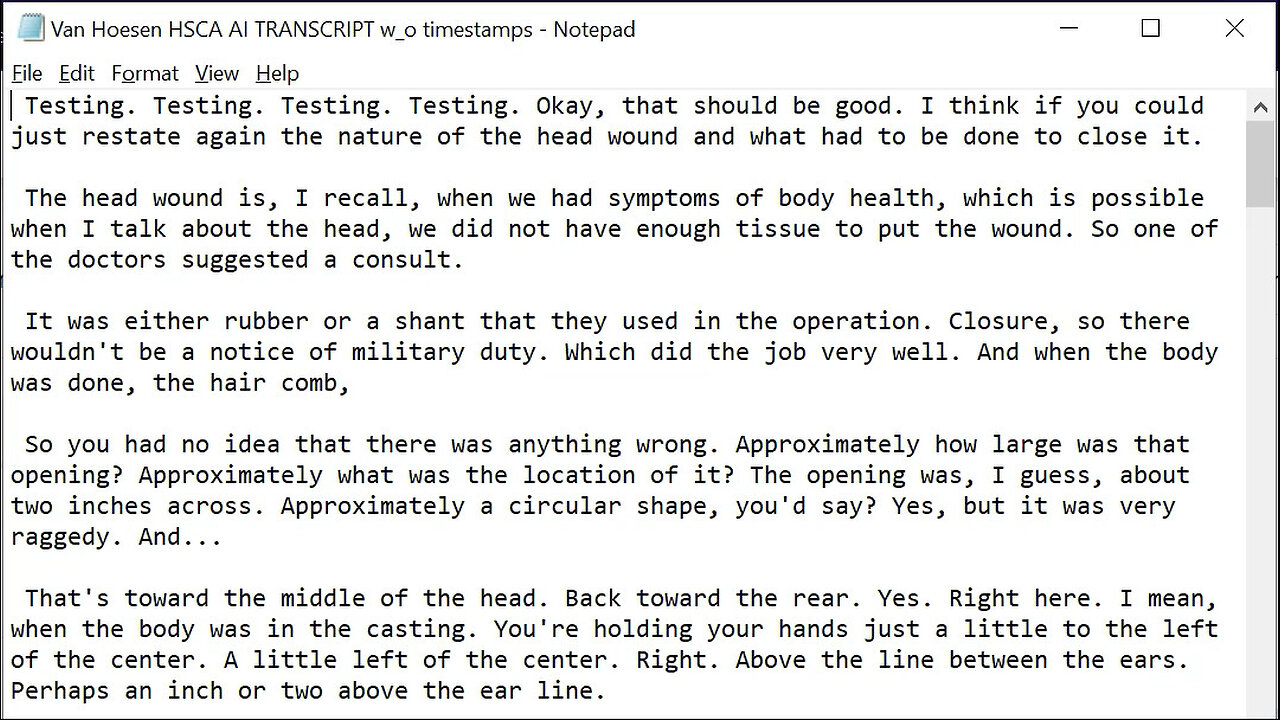
HSCA Interviews Undertaker JOHN VANHOESEN -Jackie's Ring Wasn't There Anymore
On Jackie's ring being put on Jack's hand in Parkland:
https://baylorlariat.com/2013/11/22/kennedys-surgeon-talks-about-fateful-day/
rumble.com/user/johncleer?q=rike
rumble.com/user/johncleer?q=crenshaw
Maybe normal for autopsists to remove jewelry but they'll ask the fam if they want the deceased buried in the wedding ring. Jackie obviously did, and Rike had to help her get the ring on with grease. Then she put his ring in her pocket. JFK in some stage of rigor mortis at the autopsy, I dont think they'd take it off if Jackie wanted it on (as she obviously did) and the rigor mortis was setting in and it was already too small for his finger. If anyone knows about the norms for this, please weigh in in the Comments. We know from Ed Reed's testimony (if that body was really JFK's) that the arms were x-rayed but not the hands, so they wouldn't have removed it for x-rays.
Significance in VanHoesen's later ARRB interview is that Horne and Gunn followed up on Best Evidence and asked about the casket and bodybag. He said there was a bodybag and it was wrapped in sheets inside the bodybag. Said there was a broken handle on casket which indicates he remembers the ornamental not shipping casket. Said "shipping casket" on Gawler's call form just means whatever casket it was shipped in. Said he and Gawler drove lead car, one ahead of JFK in the new casket (but which one?), back to DC from Bethesda the next morning, very slowly at the speed of a walking horse, which is what they're talking about in this vid to the HSCA I think about the 5 miles an hour speed. I've read Godfrey McHugh also said something about the slow speed, I assume he meant from the morgue not to the morgue. VanHoesen has a vivid memory of opening the casket for Jackie at the WH and she closed it quickly.
https://www.history-matters.com/archive/jfk/arrb/master_med_set/pdf/md181.pdf
*****************
AI HSCA TRANSCRIPT:
00:00:04
Testing. Testing. Testing. Testing. Okay, that should be good. I think if you could just restate again the nature of the head wound and what had to be done to close it.
00:00:34
The head wound is, I recall, when we had symptoms of body health, which is possible when I talk about the head, we did not have enough tissue to put the wound. So one of the doctors suggested a consult.
00:01:04
It was either rubber or a shant that they used in the operation. Closure, so there wouldn't be a notice of military duty. Which did the job very well. And when the body was done, the hair comb,
00:01:33
So you had no idea that there was anything wrong. Approximately how large was that opening? Approximately what was the location of it? The opening was, I guess, about two inches across. Approximately a circular shape, you'd say? Yes, but it was very raggedy. And...
00:02:02
That's toward the middle of the head. Back toward the rear. Yes. Right here. I mean, when the body was in the casting. You're holding your hands just a little to the left of the center. A little left of the center. Right. Above the line between the ears. Perhaps an inch or two above the ear line.
00:02:31
A little left at the center. I would say so. Maybe a little higher. It was a fairly high wound. Were there any parts of the head you could cite as points of reference that would help us have a better indication of the location? Well, we can get you to draw a sketch.
00:03:01
of that. So, unless I recall well, it's golden in my head. I thought I was going to be able to take care of that part because obviously the only thing
00:03:31
The other thing I really remember is the fact that we had no lip color tint to duplicate the time we met. So we had to work up something that did make some good happen. That's about all I remember.
00:03:59
the necessary adjustments in the forehead. Is that just a round, small hole? I don't know. Fragmented? I don't recall. In any event, you took care of the body cavity, the torso, and the extremities, right? And Mr. Watkins took care of the head, basically. The body was in the casket. There was no problem with any of them.
00:04:29
It would be frantic looking at the body. Did Mr. Robinson concentrate on the head? He and Mr. Trouble. Okay. Do you remember any other wounds on the head besides that round wound in the back of the head? Either side, forehead? Was the face fairly intact? Did you notice any wounds in either temporal area? Okay.
00:05:06
I don't recall anything exceptional because there was an intensive post-mortem examination ahead. I don't even see if it went down in the years. It's a normal post-mortem examination. The decision there, in this situation,
00:05:37
Well, let me ask you, sir. Normally, in an autopsy, they used a saw from ear to ear. Were they able to do this this time, or was that hole extensive enough that the wound type hole, was that extensive enough to preclude any saw? Every palm you can saw, whether it was on the ribs or head. I don't know.
00:06:07
So I guess what they did, they, if I understand it right, when they removed that section by virtue of that power saw, they probably removed the hole in time. It seems to me to be located in about the right...
00:06:36
sections of the cranium that we had to piece together. Oh, I see. We tried to glue the whole shape and the shape of the head and something. Did you get to see the extent of the brain damage or did they just and lift it up? How about the rest of the body? Did you notice any mark of injury of any kind there?
00:07:07
anywhere else in the body? While you were checking the extremities and so forth? Nothing that I noticed.
00:07:32
I guess the post-mortem examination probably would have included the test for blood alcohol. Do you people ever do that? No. So you don't recall closing up any other wounds? No. Did you have occasion to look at the President's back to see if anything was wrong?
00:07:59
closed it every day. We never washed it, but we would turn it on one side. And as best I recall, there was no wounds that we had to make it with sutures or stitch up or see it, probably see it with all kinds of everything. No. It's not something like that because I recall, you know, we washed the body every day.
00:08:32
Do you recall in particular if there was any kind of wound or special suture or anything done in the front of the President's throat or on his back, on the back of his neck? I don't recall. Do you recall any evidence of a tracheostomy? You probably would have had to take care of that. Right.
00:08:58
They probably trained them at that hospital down in Texas when they first got ready. I forgot about that there. You know, a funny thing about, I probably shouldn't say funny, but, uh, uh, coincidence. There also happened to be a bullet wound in that area
00:09:28
You know, of course, I guess, you know, the trach would take precedence. It's not a certain man's life. I was wondering if you had occasion to notice something other than just a regular trach site. Oh, I'm sorry. Yeah, well...
00:09:58
Yeah, that was a long time. Actually, you've done well to remember as much as you have. Do you remember any discussion with the doctors or some of your colleagues afterwards about what could have caused that major wound that you saw in terms of the type of bullet or the direction of the bullet?
00:10:29
or any discussion of the cause of death. No, no, we never had one in here. I know you've been in this business a long time, but even that was an unusual circumstance, even for an experienced person like yourself. Did you, at any time during or after, after it was all over, or after the dust settled, did you take any notes or
00:10:56
Never did. No pictures or notes? Did anybody write anything down or take a picture? Maybe they didn't write it. I might talk to it. Do you think somebody might have mentioned something along those lines?
00:11:27
None of us have. Joe Gordon, I don't know. Joe came back here when we were still up there. Well, I guess we'll inquire about that. Is there anything you can think of to add on your own that maybe we haven't had the presence of mind to inquire about today?
00:11:56
It was something that might have gone on that may or may not have seemed significant at the time. The only thing that struck me was God, because you were there, but when you were going down, you could not keep going for five miles an hour. Okay?
00:12:26
I think that's a long ride. It's 35 miles an hour. To me, that seemed very meaningful. Question something. Yeah.
00:12:55
That was late at night, too. Early in the morning, I guess, yeah. All, finishing it, all, every corner. Yeah. It seemed such an odd thing, all this, that somebody would say, oh, I'm all in the heart. Yeah. And how did it last?
00:13:25
Another one that came out at the time, a wedding band. And she was sent down or something for the wedding. But I think he didn't have, he had no jewelry on him. He had no jewelry on his body. Brother, Robert, had a wedding band. Something, something. It was not, uh,
00:13:56
Did he have a watch or ring of any kind? I don't know. Have you been questioned by any authorities before on this? No, I had one night. What was it about?
00:14:26
A few months later, some magazine called me. I told them to call Mr. Bullard. He said, you're out of your company policy. I said, it's my idea and the company's policy. He said, yeah, an interview, telephone. Come on, I need to do any work. I said, yeah, something, something. But he never got back. I never had a problem. All right.
00:14:56
On the record, my name is spelled wrong, which is really same thing. H-O-E-S-E-N, H-O-E-S-E-N. So nobody ever bothered me over there. Maybe that helped. Yeah, right. Yeah. I know the man that I'm trying to recall at night.
00:15:27
I recall his military aid in the Air Force Column. I recall the White House position. He couldn't have been the one to give so capable aid, because he seemed to be no less in charge. Let's see.
00:15:59
We were told to figure out how to get all this up until the next day when Stovall and I were cleaning up the instruments. We turned Navy support back then. It wasn't time to tell the night to do this or that. I personally have had no contact anywhere. I've never even sat down to discuss it with Stovall or Robinson.
00:16:29
in one of those situations. The next day he would die. He struggled to cease to learn. Mr. Robinson is working in Virginia sometimes. What about his education? He is, if I saw a decade
**********************************
Other Undertaker ARRB Summaries-
Robinson
https://www.history-matters.com/archive/jfk/arrb/master_med_set/pdf/md180.pdf
Hagan
https://www.history-matters.com/archive/jfk/arrb/master_med_set/pdf/md182.pdf
https://rumble.com/v6y9xgu-arrb-interviews-undertaker-joseph-hagan-kennedy-entered-in-shipping-casketl.html
-
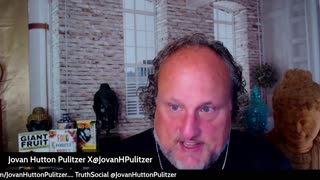 38:11
38:11
Election Fraud Videos
11 hours agoIn the end its abt Bankrupting Us &Bleeding The System Dry--but the Shutdown Makes Us Solvent in 60d
38 -
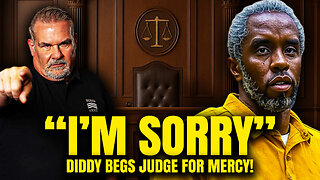 LIVE
LIVE
The Bubba Army
20 hours agoDiddy BEGS for Mercy in Judge Letter - Bubba the Love Sponge® Show | 10/03/25
7,256 watching -
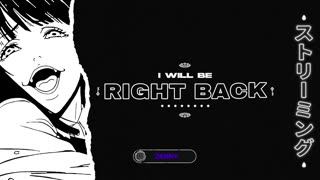 LIVE
LIVE
ZENNY
1 hour agoBO7 IS HERE BOT POV MF HAHAHAHA 6v6 PG18+ | UNFILTERED CHAT | CURSES AND BAD
79 watching -
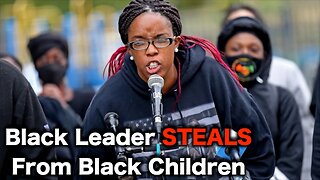 15:17
15:17
Actual Justice Warrior
2 days agoBLM Leader CONVICTED Of Fraud
8.26K27 -
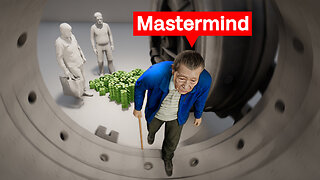 13:19
13:19
Zoufry
2 days agoThe Grandpa Gang Who Robbed a Bang For $16 Million
7.56K4 -
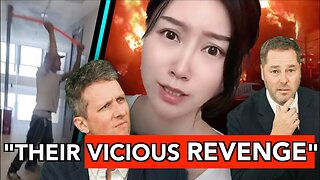 2:18:45
2:18:45
The China Show
3 days agoChinese Citizens STRIKE BACK + China's Sick New Punishment Exposed - #282
9.45K4 -
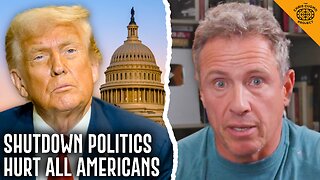 25:20
25:20
The Chris Cuomo Project
1 day agoChris Cuomo EXPOSES Lies Behind the Government Shutdown
10.2K34 -
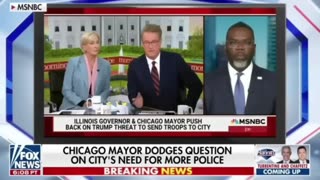 21:03
21:03
Nate The Lawyer
1 day ago $2.66 earnedChicago Mayor Brandon Johnson Under Fire Over ‘Defund’ Remarks Amid Crime Concerns
12.2K12 -
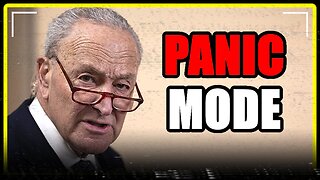 8:05
8:05
MattMorseTV
17 hours ago $12.25 earnedSchumer’s SECRET AGENDA just got EXPOSED.
45.3K44 -
 16:37
16:37
Robbi On The Record
11 hours ago $2.93 earnedThe Theater of Manufactured Outrage - When Left and Right Dance for the Same Puppet Master
10.1K6
